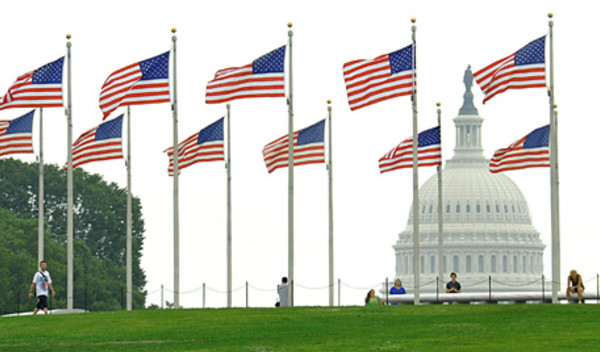

Baring Asset Management’s Marino Valensise has upgraded the outlook for the US economy after the release of positive wage and consumer data.
The head of the group’s multi-asset team said wage growth and consumer spending – bedrocks of the US economy – have been missing but were now beginning to emerge.
Mr Valensise said while the first signs of faster wage increases were modest, they had “materialised”.
“This is positive from a macroeconomic perspective and is a sign of health in the domestic economy,” he said.
Mr Valensise added that after several months of poor weather and higher-than-expected saving, the US consumer had shown renewed signs of life.
“The windfall from a lower oil price and the recent improvements in wage growth are starting to generate extra demand,” he said.
“For these reasons, our macro research team recently upgraded its view on the US economy.
“In addition to the well-documented economic recovery, the first modest signs of wage pressure have emerged and will contribute to higher spending.”
But the multi-asset head cautioned that these positive pieces of data could also contribute to something markets were wary of: an interest rate rise.
Mr Valensise said there were “several reasons” why the US Federal Reserve may soon raise rates.
These included a “desire to inject some discipline into the world of credit” and the need to move the Federal funds rate to a high enough point “where it could be cut if a recession were to emerge”.
He also said as unemployment falls – it has dropped from 10 per cent in October 2009 to 5.5 per cent now – it could reach what is known as the non-accelerating inflation rate of unemployment, or Nairu, below which inflation rises.
“This last point is increasingly important. If the next Employment Cost index and average hourly earnings data releases confirm the trend, the Fed will find it extremely difficult not to act,” Mr Valensise said.
“The one deterrent to any change in monetary policy would be financial chaos caused by the Greek situation, which is ‘a huge wild card’, as Bill Dudley [president of] the New York Fed recently reminded us.”
In terms of when rates will rise, Mr Valensise said the market consensus of it happening between December this year and next February was “too complacent”. Instead, markets may be forced to bring “rate rise expectations forward as the strength of the US economy becomes apparent”.
The multi-asset head suggested the repricing needed to accommodate an earlier-than-expected rate rise could “prove problematic” given “secondary bond market liquidity conditions have been deteriorating for a while”.
He added markets had no experience of a Fed rate rise during a period of “mediocre single-digit earnings growth”.



